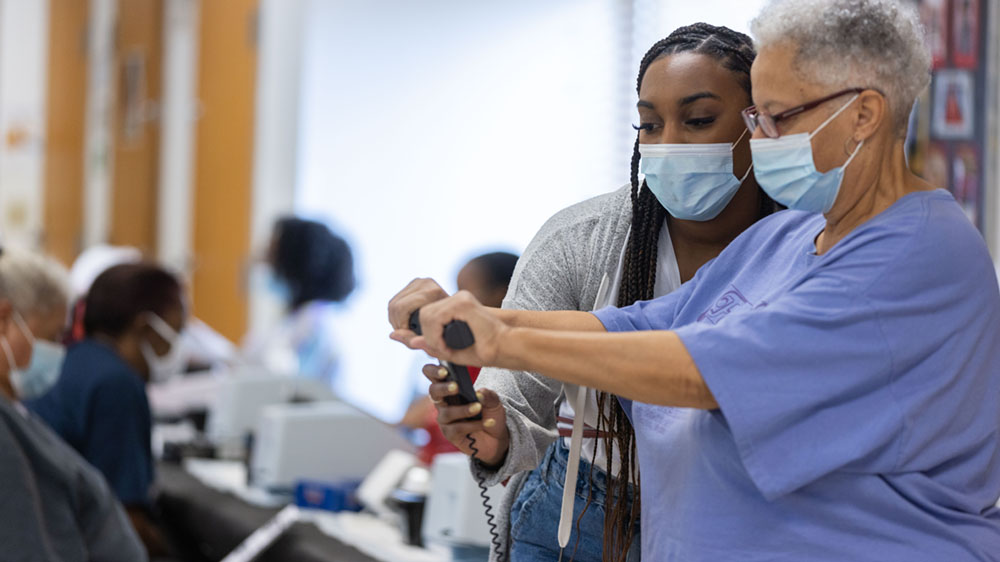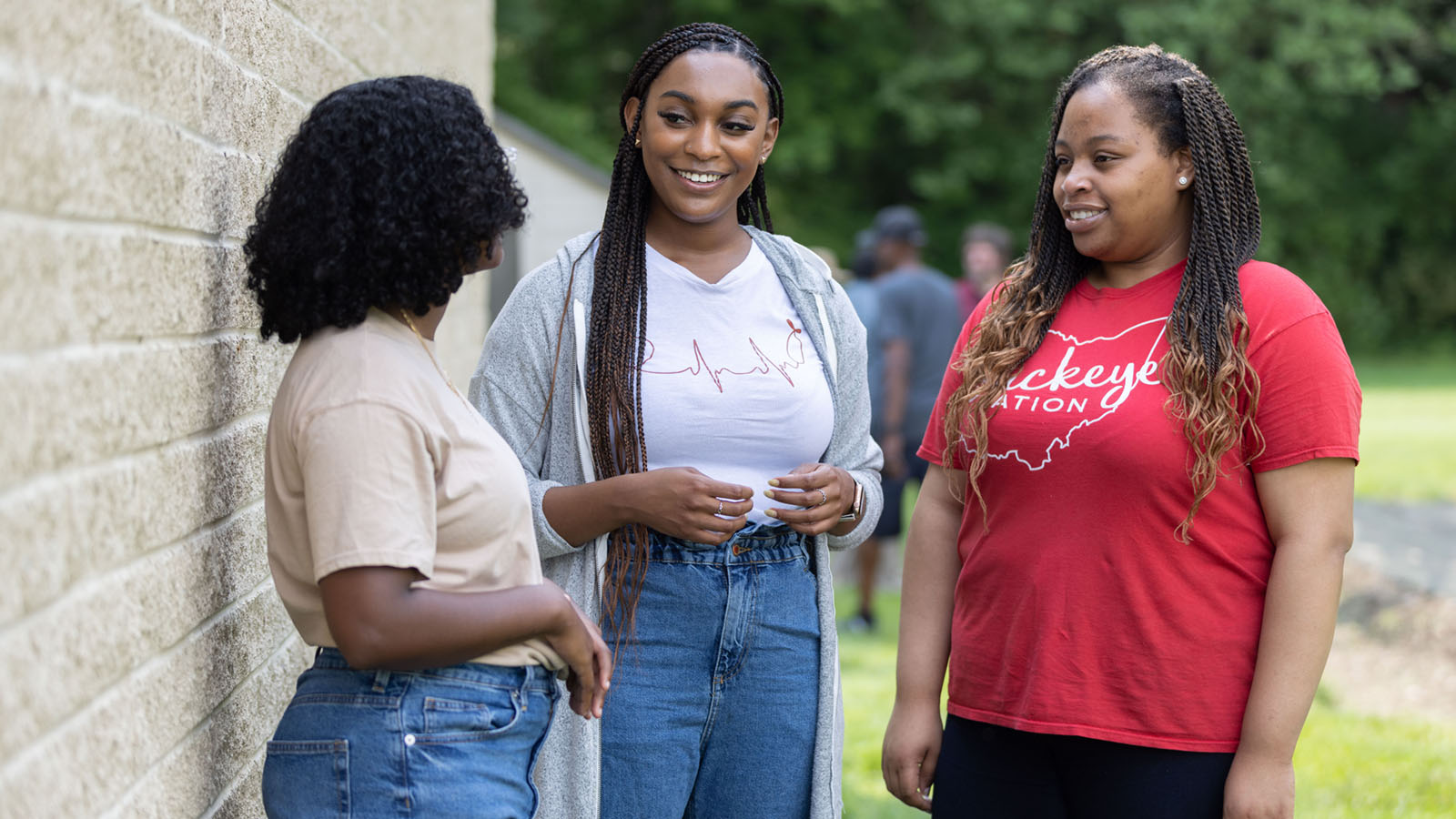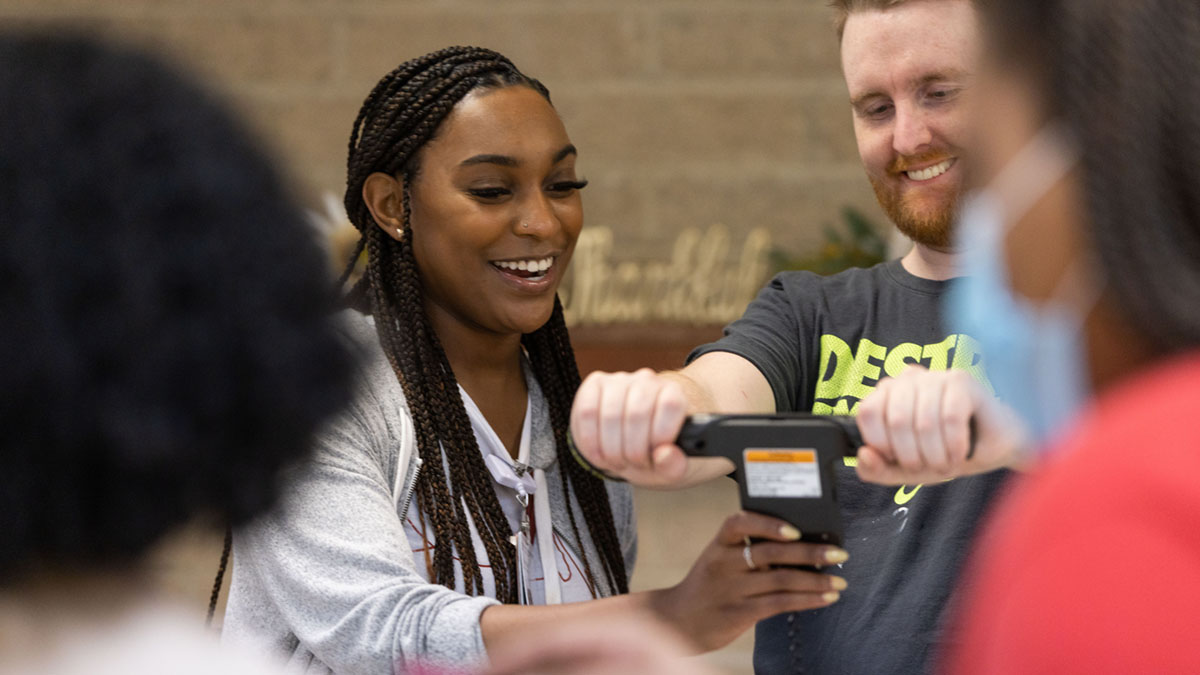One student's vital calling to ensure equity
Faith Metlock's drive to improve health disparities found its focus through involvement and mentorship.
Her grandmother was a nurse. Her mother is a nurse. There was no way Faith Metlock was coming to Ohio State to study nursing.
Except, she totally did.
“A third-generation nurse, I’m still processing that,” says Metlock, a 2022 graduate from the College of Nursing. “I just wanted to be different at first. But I was destined to pursue nursing. It’s in my bloodline. And it’s the greatest decision I’ve made.”
After initially studying pharmacy, Metlock switched to nursing because it promised many paths to fulfill her deep desire to provide both patient care and the ability to effect change, specifically with regard to health equity.
But which path to take?
She tried a few, such as anesthesiology, working as a student nurse assistant in the Pre- and Post-Anesthesia unit at the Wexner Medical Center during the COVID-19 pandemic.
But nothing quite fit. So, she began searching.
“I went through this crisis moment of, what am I going to do now?” Metlock recalls.
Nursing scientist
Before the pandemic hit in spring of 2020, Metlock was part of a team that started the Nursing Students of Color organization with Dr. Timiya Nolan as its advisor. So, who better to go to for career advice?
Metlock met with Nolan and discussed the latter’s work as a nursing scientist. Then, Nolan took Metlock to what is essentially her lab and clinical facility — the Columbus community.
Working directly with patients, Nolan showed how community-based research can develop interventions to combat health disparities. Those interventions include health screenings and teaching people to take care of themselves to avoid chronic health conditions — specifically breast cancer and cardiovascular disease, which both hit Black communities especially hard.
“I’m a nurse practitioner but a full-time researcher,” Nolan says. “When I go out into the community, that is my clinical time. Faith gravitated toward that. She saw it as an opportunity to use the skills she had gained to make a bigger impact.”
Metlock became a research assistant in Nolan’s lab, participating in studies such as the Black Impact Study and Uplift Her, even speaking about her research at conferences. After graduating in May, she headed to Baltimore, where she will be a PhD student at Johns Hopkins School of Nursing.
There, Metlock will continue down the path of the nurse scientist, further exploring how social determinants of health impact underserved populations.
“Dr. Nolan has been an incredible mentor,” Metlock says. “She’s opened my eyes to so many opportunities and challenged me to do things I never would have seen for myself.
“I fell in love with community-based research. It changed my entire life, my entire approach to how I wanted to go about health care.”

Black Health Explained
As the pandemic rolled on, Metlock challenged herself to find innovative ways to combat the sharp health disparities the nation was coming to grips with. The result was Black Health Explained, an online platform that delivers health-related information to young Black people through blogging, videos, infographics and other content on Instagram and her website.
“My hope was that by educating my community we could help them better manage their health,” Metlock says. “Social media is an avenue not often explored when it comes to health information. I wanted to be a trailblazer in that aspect and improve health literacy.”
Since Black Health Explained launched in 2020, Metlock has received “overwhelming support,” not only from followers but also from Ohio State. She’s received funding from the College of Nursing and was nominated as a Next Generation Innovator of the Year by the Office of Research.
She’s even brought on additional team members as interns, rising seniors Hayat Mekonen and Stephanie Ogonuwe, both public health majors focused on increasing health literacy to bring about health equity.
“Faith is so passionate about the health of the Black community and advancing health equity,” Mekonen says. “We really connect in that space; our passions are very similar. She has an amazing vision for this platform, so she’s a great leader all around.”
The team is creating a directory of Black health care providers. Metlock envisions it becoming a mobile app.

Mekonen and Ogonuwe also recently joined the Nolan Lab as research assistants. Ogonuwe says Metlock has turned out to be a major influence and support system for her.
“She’s taught me a lot about being a student leader,” Ogonuwe says. “She’s acted as a mentor to me, encouraging me, helping me learn how I can better promote myself. She really tries to build people up, give them confidence and remind them the power they have within themselves.”
Supporting her peers through a variety of leadership and involvement endeavors is exactly what Metlock will remember as her Ohio State legacy.
“I’ve been super involved here at Ohio State, often as a leader, and it’s really supplemented my experience here,” Metlock says. “I’ll definitely look back fondly on my efforts to create safe spaces (such as the Nursing Students of Color organization) for students.
“It’s difficult being from a marginalized community. Having a support system where you can connect and engage with students who go through similar experiences is vital for growth and success. To be able to help create those spaces and improve experiences for students of color here was worthwhile and meaningful.”
